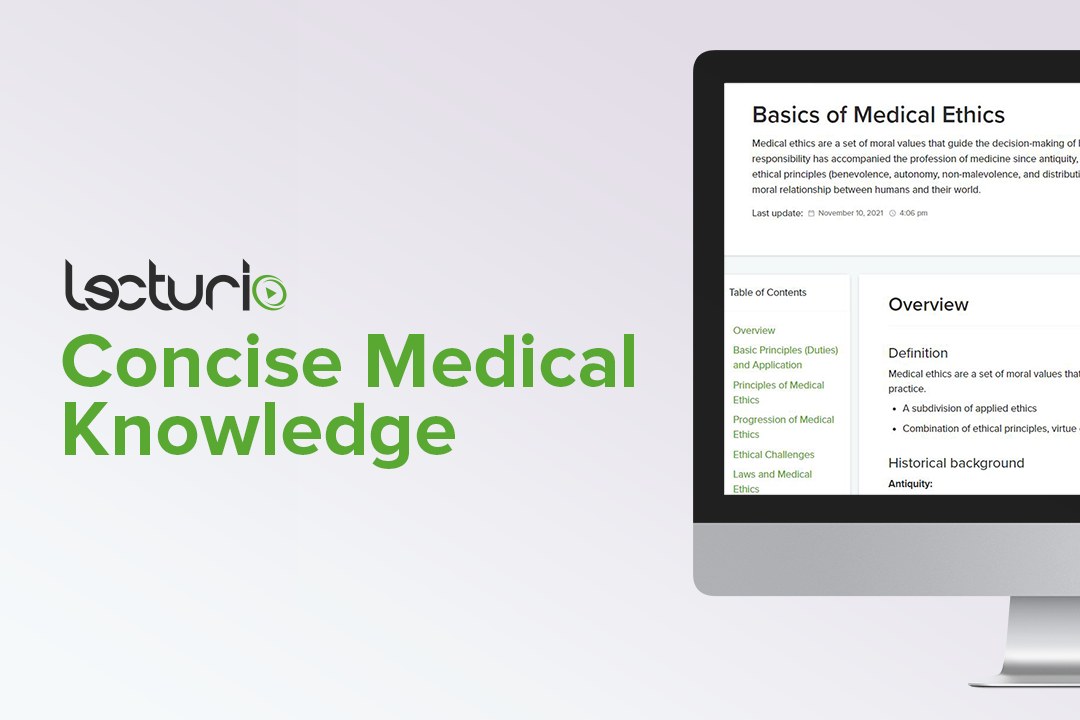Playlist
Show Playlist
Hide Playlist
Introduction to Resource Allocation
-
Slides Introduction to Resource Allocation.pdf
-
Download Lecture Overview
00:01 A discussion of resource allocation is fundamental to any ethical discussion of how we practice medicine. 00:07 Resource allocation in healthcare describes the constellation of decisions and actions that prioritize healthcare needs. 00:16 We would define rationing as the distribution of any needed thing or procedure that is in short supply to those who need it in accord with a set of rules that assure fair distribution of these resources. 00:29 Let's take a little bit more of a look at the concept of justice and how it relates to resource allocation. 00:34 Healthcare workers should aim to safeguard the interest of patients. That is undeniable. 00:39 However, a just process should be used to determine an adequate level of healthcare. 00:45 And then, finally, how one decides what is fair and what is just can be challenging to determine. 00:51 This is where we enter into these ethical discussions of the scarce resource allocation process. 00:58 Now, when it comes to ethical decisions in healthcare resource allocation in healthcare ethical dilemmas, oftentimes, the focus, justifiably so, is on individual patients. 01:11 Nevertheless, when we prioritize systematic healthcare needs, the focus of decision shifts from the individual patient to a group of patients. 01:23 This might be, for example, a national population or it could be a local community of users or of a specific service. 01:31 We've already covered the four basic ethical principles and we've discussed them in some detail. 01:36 Let's take a look at how these may apply specifically to the concept of resource allocation. 01:40 Autonomy is the ability of a patient to decide his or her own healthcare. 01:44 However, because of resource, maybe scarce does not necessarily mean a patient may want to partake of that resource. 01:50 So, autonomy must be considered. Justice is distributive in nature. 01:56 So, therefore, we want to look at scarce resources and how these can be allocated fairly to a population whose need or demand may exceed the supply of resources. 02:06 Beneficence. Well, it stands to reason that these resources will do good for patients. 02:11 Any resource allocated to a patient must be something that has an inherent good which benefits a patient. 02:16 With regard to non-maleficence or the opposite of beneficence, this can be viewed in terms of taking a scarce resource away from one patient to give it to another patient. 02:27 When this is done, we may cause harm and this needs to be examined closely before these decisions are made. 02:33 So, a balance, in fact, needs to be struck between respect for individual autonomy and fair distribution of limited resources which may potentially benefit the whole population. 02:43 This tension between the benefit to the individual and to the social group is constantly kept in mind by those who make these decisions. 02:52 So, now, let's take a look at the concept of utilitarianism and how it relates to resource allocation. 02:58 So, one may define utilitarianism as the ethical theory that prioritizes community or population-level decisions above that concerning any individual. 03:08 The ethically correct action according to a pure utilitarian point of view may be that which results in the maximum overall benefit. 03:18 However, there are those who find this problematic and who say that the improvement in health for an individual cannot be disregarded and therefore, we must keep this in balance with regard to a utilitarian or overall benefit of a resource. 03:33 Now, there are two primary criticisms of a utilitarianism theory. 03:37 The first is the one that I just mentioned and that's that there's a failure to consider the need for healthcare intervention on a case by case basis. 03:46 In addition to that, we would say that it fails to continue the need for healthcare intervention and it relies rather heavily on cost-effectiveness. What is an alternative to this utilitarianism theory? Well, we might look at the theory of the philosopher, Emmanuel Kant. 04:03 And he talked about the concept of deontology. 04:06 Deontology is duty ethics and this argues that the end does not always justify the means. 04:12 So, keeping deontology and utilitarianism in balance with each other is very important to make appropriate decisions.
About the Lecture
The lecture Introduction to Resource Allocation by Michael Erdek, MD, MA is from the course Resource Allocation.
Included Quiz Questions
What is healthcare rationing?
- The distribution of any needed thing or procedure in short supply to those who need it
- The constellation of decisions and actions that prioritize healthcare needs
- Acting to safeguard the interests of patients
- Fairness
- Beneficence
What is NOT one of the four basic ethical principles?
- Adherence
- Autonomy
- Justice
- Nonmaleficence
- Beneficence
Customer reviews
5,0 of 5 stars
| 5 Stars |
|
5 |
| 4 Stars |
|
0 |
| 3 Stars |
|
0 |
| 2 Stars |
|
0 |
| 1 Star |
|
0 |




